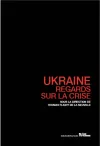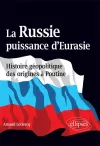Swiss banks aren’t only about confidentiality
Switzerland has reached an impasse with Germany which bought stolen information about German accounts in Swiss banks for 2.5 million EUR.
“It is very difficult for a state to reach an agreement with another state when one side is buying illegal data. It isn’t possible to just say that everything is ok and we should be transparent,” says Arnaud Leclercq, partner of the Lombard Odier Darier Hentsch & Cie holding group. He says that Italy best dealt with the situation of foreign savings by offering tax amnesty.
* E15: Lombard Odier came to the Czech market over two years ago. Are you satisfied so far?
You could say we are. We started from zero, just a discreet private bank. Now we are ranked in the Czech Republic as one of the private banks offering the highest quality of services, which is an accomplishment. Of course the crisis puts some strain on our business, so we will still have to see what happens. We will clearly still keep the branch here.
* E15: Have you lost any clients in the Czech Republic because of the crisis, what about managed assets?
We actually grew a little bit. We were helped by the fact that wealthy people usually don’t want to just have one account. A number of people were upset by the fact that their bank invested their savings into risky products, others were worried that their bank would collapse. A number of European banks were almost nationalized, and many of the wealthiest people want to invest money into private institutions, like us, and not into the state owned banks.
* E15: Even private banks offered structured products as an investment option up until the crisis, which could have been quite risky. What are you offering now?
Luckily, we didn’t get involved in the most problematic investments and ended our cooperation with Lehman Brothers six months before the bank crashed, we also didn’t have any exposure to the Madoff funds. Not that we are infallible, but when a bank has only a few clients, they know their needs, unlike a big retail bank which has a different kind of business. It’s like a factory that distributes products, like selling cars. At our bank, every client invests differently according to their age, gender, lifestyle, conservativeness, etc. We aren’t a product factory. None of our employees have some kind of goal in terms of number of products sold like they do at other banks.
* E15: How does the model portfolio for your clients currently look?
Compared to our competitors, we have decreased the number of shares in portfolios. Our competitor’s portfolios have about 40-45% in shares, we have about 20-25%. We think that American shares are overvalued and we are concerned about the macroeconomic situation. The crisis is far from over.
* E15: What leads you to this conclusion?
We haven’t really seen a lot of positive news around us, and I’m not talking about targeted statements in the media. We hear about the news in Greece or Portugal, which is all in Europe, as well as American and Spanish unemployment which has never been so high… It’s impossible to go anywhere quickly during a crisis. A number of big banks are being propped up by state support in a similar way to the auto industry. The crisis is unfortunately still far from over. It’s important to remember what happened in 1937 after the Great Depression. Governments thought that the crisis was over and adopted restrictive measures, which didn’t help globally. Governments are already talking about an exit strategy, but it could be too soon, the crisis isn’t over.
* E15: What do you think will be the most likely scenario, a long stagnation of the current down period, or an additional dip in the global economy?
This isn’t easy to determine. We’re currently at a crossroads. In terms of investing, which is something we are experienced with, we are making tactical decisions. There are still good opportunities on the market, portfolios were well managed last year and we have the same outlook for this year. If we look at the macroeconomic situation, it’s very difficult to predict anything.
* E15: Where, in terms of regions, do you think there are investment opportunities? Before the crisis it was Russia, Romania, Ukraine and other countries, which didn’t really pay off…
China is still quite promising, it’s growing, but there could still be risks involved. Russia and Ukraine (Ukraine a little bit more), are still having significant problems, projects are frozen. Ukraine is also suffering from political instability, and it goes further than just the last elections. I often speak about Ukranian businessmen who start a project, then the regulations are changed, and they have to start again. Economics and politics require a stable system. This also applies to the Czech Republic which is in the heart of Europe, so everything that happens around it has some kind of effect. The idea that the Czech Republic would remain unaffected by the negative events was just a dream. On the other hand, in comparison to Ukraine, the country is doing much better and is more equipped to deal with the crisis. There is a flexible, educated society here.
* E15: When you compare the individual branches you have worldwide, which of them is the most successful and profitable?
The Swiss main office fared well last year because many wealthy families decided to move themselves or their companies to Switzerland. They see Switzerland as a mature market with clear regulation and a banking system. For example, there are over 330 banks in Switzerland and only one, UBS needed state aid, and that was only for a short while. Regulations in Switzerland are changing of course but in comparison to other European banking centres, it does extremely well because of its tradition and history.
* E15: A big theme is Swiss banking confidentiality. Are there expectations that this will be changed? What would happen?
The situation is complicated and Switzerland is seen as a scapegoat. Some countries need money. The crisis which is currently underway doesn’t have anything to do with Switzerland, it started in the USA with overleveraged banks and complicated financial products which entered the world without any kind of risk control.
For example, the largest insurance company, AIG, which almost went bankrupt, didn’t have anything in relation with Swiss banking confidentiality but politicians are always looking for somebody else to blame. Our senior partner, Patrick Odier, is also the President of the Swiss Banking Association, so he is at the source. The situation was discussed with each individual country, which was quite complicated. Then they arranged to sign a change in tax treaties which were approved by parliament. However, some countries have decided to buy information that was stolen from Swiss banks, regardless of their criminal origin. It is very difficult for a state to reach an agreement with another state when one side is buying illegal data. It isn’t possible to just say that everything is ok and we should be transparent. States should negotiate according to the rule of law and financial ties, trying to find a solution. Generally though, interest in Swiss banks has been growing over the last while, so it’s clear that people like the idea of tradition and quality services, not only banking confidentiality.
* E15: Which state is rallying hardest against banking confidentiality, Germany?
I don’t really know, France is also pretty active. Italy so far is the most effective, they decided to provide tax amnesty to deposits abroad. There wasn’t a lot of noise, but at the same time Italy made money, they got billions of euros back. It’s an interesting case because the clients also made money, which they can then invest
in the domestic economy.
* E15: Even private banking is seeing changes in assets, for example KBC is going to sell their private banking division. Do you think that this isn’t an attractive business for big banks?
Big retail banks which target massive amounts of customers tried to attract wealthier clients, when they didn’t have any experience with them. Now they are once again starting to become traditional retail banks because they weren't very successful with private banking. When a wealthy client goes to sleep, they know their money is safe with use, because our accounting books are clean and we don’t have any bad debts… They wouldn’t however, be able to sleep well if they were worried that the bank that holds their savings will need to ask for state assistance or even completely vanish from the market. Our work is to protect and expand the assets of clients and we’ve done this for more than 200 years, and it’s what we want to continue doing. Clients now better understand the fact that for loans or investments into real-estate, there are commercial banks. For investment banking there are investment banks and for weather clients there is our bank. The market is segregating and each type of bank is returning to its own kind of business.
* E15: Has your bank considered buying other private banks or portfolios?
We have historically been built on organic growth. If you buy a company, you are buying their share of the market and you want to show in the returns that it was the right decision. What often happens with new ownership is that they are unable to even maintain the value of the business. Our business model is different, we are building ties with clients that will last generations.
* E15: How did your bank do last year?
We unfortunately don’t announce financial results. In general, assets under management grew, revenues from asset management slightly dropped as well as income coming from banking fees. It’s a little bit of a paradox, but it’s because of the fact that a lot of clients invested more conservatively and held on to more cash. But we aren’t going to push our clients to invest somewhere that they wouldn’t otherwise, simply so that we can get broker’s fees. In time, the possibilities for investment will return.
* E15: Back to your portfolio model, other than equities, what else do you recommend, gold for example?
There is more and more gold in our portfolios, on average approximately 10%, some clients have higher proportions. Many of them actually hold gold in our safes as they are more comfortable to have it in a Swiss bank instead of a retail bank. For example, in the 1930's after the crisis, the American government confiscated gold. A part of the portfolio goes into short-term tactical investments, some into very long-term investments often focusing on sustainable investment and healthcare. Here they are buying into trends which aren’t going anywhere.
* E15: When you get new clients, is there a difference in your steps from country to country?
That depends on whether we are already known in the country or not. It also depends on the political and economic environment. For instance, in Russia people are concerned about political developments. It isn’t because of taxes, they have a 13% flat tax, in addition it’s a myth that people move money to Switzerland because of taxes. People are primarily scared of the confiscation of their assets and are looking for stability and protection. People from the Middle East on the other hand are looking for investment opportunities. The Czech Republic sits somewhere in between, you could say that confidentiality is most important for them. This is pretty much standard, wealthy people don’t like it when other people know that about them, they don’t like to show it off. In Geneva we have a big office, but here we don’t even have a sign put up, it’s this kind of Swiss protestant ethic. Which the Czech’s like.
* E15: Do you have some method of determining whether a client who brings you money acquired it via criminal or corrupt means?
Yes, it is very strict. The most important thing for us is to know the client. It works like this: the client comes to use and wants to open an again, they tell us the story of how they acquired the wealth and show us some documents. We say, “ok, this looks trustworthy,” we confirm it and open an account. If in half a year something happens on the account that isn’t in line with the original story, we find out what is going on and if we have any doubts, we move on.
* E15: So you would close their account?
Of course. An account is a two-sided contract and if one of the sides doesn’t meet their obligations, the contract is closed. Luckily this doesn’t happen much, criminals don’t go to Swiss banks often. There are still a number of places in the world that are regulated less.
***
A big retail bank is like a factory that distributes products. We aren’t a factory of products. Confidentiality is probably most important for Czech clients. This is pretty much standard, wealthy people don’t like it when other people know that about them, they don’t like to show it off.
Arnaud LECLERCQ (42)
Completed studies in business law, holds an MBA from HEC Paris and is a graduate of the Harvard Business School. He began his career in 1989 at the Berlioz legal firm in Paris where he specialized in M&A in emerging countries. In 1991, he founded his own consulting firm in Moscow. After selling it in 1994, he held various international positions in the Bouygues Group. In 2000 he joined Credit Suisse, later becoming Managing Director as well as being a member of several boards.
He joined Lombard Odier in 2006, and in 2007 became a partner of the Lombard Odier Darier Hentsch & Cie holding group. He is responsible for developing the firm's private clients business in new markets, specifically in Eastern European Countries and the Middle East.
Article published in E15 on 19 February, 2010





